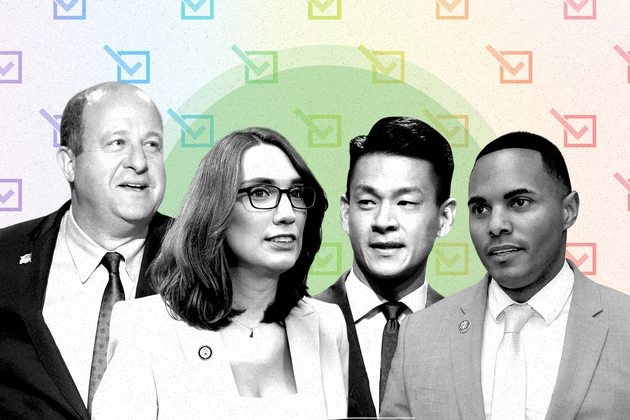
SAN FRANCISCO — The leader of the largest PAC dedicated to electing LGBTQ+ people to office suggests that Democrats should prioritize ‘kitchen-table issues’ over gender identity discussions.
Shifting the Narrative
Evan Low, president and CEO of the LGBTQ+ Victory Fund, advises candidates to steer clear of contentious topics like transgender participation in sports — a focal point for President Donald Trump and conservative groups.
Low argues that such issues impact a minority of individuals, stating, ‘This is not a top-tier concern. We should emphasize kitchen-table matters, not identity politics. Our goal is to serve the people, not diverge on divisive topics.’
Political Strategy Amidst Challenges
Low’s perspective emerges amidst ongoing discussions within the Democratic Party on regaining support from working-class voters post-election losses. The debate centers on the extent to which identity issues should feature in the party’s messaging. Despite this, LGBTQ+ advocates find themselves under scrutiny from the Trump administration.
Trump’s anti-transgender rhetoric forms a key element of his political campaigns, with the GOP frequently deriding Democrats on this front.
Pragmatic Campaigning
Low highlights the increasing importance of pragmatic campaign strategies for LGBTQ+ candidates, particularly in the face of Trump’s emphasis on cultural controversies. He points to successful campaigns that have adopted the ‘kitchen table’ approach, backed by data from the Victory Fund’s upcoming ‘Out in America’ report.
The report reveals a significant rise in openly LGBTQ+ individuals holding public office, nearly tripling since Trump’s first term. While many LGBTQ+ officeholders operate at the local level, some have secured prominent positions, even within the Trump administration.
Political Diversity and Representation
Despite the broader political climate challenging LGBTQ+ rights, notable strides have been made in representation. Figures like Colorado Gov. Jared Polis and Treasury Secretary Scott Bessent underscore this progress, with LGBTQ+ individuals increasingly assuming leadership roles.
According to Victory Fund data, the vast majority of LGBTQ+ officeholders align with the Democratic Party, emphasizing the party’s commitment to diversity and inclusion.
Emphasizing Policy Over Identity
Polis, for instance, focused his gubernatorial campaigns on key policy areas, downplaying his sexual orientation except when directly questioned. By prioritizing issues like education, healthcare, and renewable energy, he navigated the campaign trail with a policy-centric message.
This strategy resonates with LGBTQ+ candidates nationwide, who find success by addressing mainstream concerns and avoiding identity-centric narratives that could alienate voters.
Future Prospects and Impact
The LGBTQ+ community’s political gains, despite external challenges, showcase the resilience and appeal of diverse voices in governance. Individuals like Rep. Sarah McBride and Rep. Ritchie Torres exemplify this trend, breaking barriers and reshaping political landscapes.
Victory Fund’s Elliot Imse emphasizes that LGBTQ+ candidates can drive progress without solely focusing on identity issues. By championing everyday concerns, these candidates humanize their campaigns and resonate with a broader electorate.
Building Bridges Through Policy
Iowa state Rep. Aime Wichtendahl’s experience encapsulates the power of policy-driven campaigns in overcoming divisive tactics. By prioritizing community engagement and policy solutions, she navigated a challenging electoral environment, proving that direct voter outreach can counter negative narratives.
Ultimately, the success of LGBTQ+ candidates lies in their ability to connect with voters on shared values and practical solutions, transcending identity labels to focus on meaningful change.











